Plenary Sessions are supported by SICE
Submit your paper to SICE Journal of Control, Measurement, and System Integration
Plenary Talks
Plenary Talk I
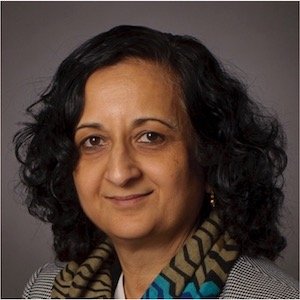 Resilience and Distributed Decision-making in a Renewable-rich Power Grid
Resilience and Distributed Decision-making in a Renewable-rich Power Grid
Monday, 10 July 2023, 8:30-9:30 @Main Hall
(Satellite room 501+502 is also available)
Anuradha Annaswamy
Abstract: The power grid has evolved from a physical system to a cyber-physical system that consists of digital devices that perform measurement, control, communication, computation, and actuation. With increased penetration in distributed energy resources (DER) that include renewable generation, flexible loads, and storage, these devices can be as large as 8 billion in number just in the US grid, many of whom are capable of monitoring and making crucial decisions. While these devices provide extraordinary opportunities for improvements in efficiency and sustainability, they also can introduce new vulnerabilities in the form of cyberattacks. This in turn can cause significant challenges in ensuring grid resilience, i.e. satisfactory restoration of grid services in the face of severe anomalous behavior. The additional difficulty is to ensure this property even while integrating DERs which are intermittent, uncertain, and distributed. In order to overcome these challenges, a framework that enables distributed decision-making and control is essential, and forms the focus of this talk.
With growing presence of DER, owners and stakeholders also increase in number. In order to leverage disparate ownerships, it is critical to design market structures that enable smooth integration of DERs. Local electricity markets with a hierarchical structure have been proposed that accommodate the distributed ownership of DERs, both in location and time, improve market performance, and at the same time ensure that physical constraints due to power physics are not violated. Such a market structure also enables visibility to grid operators, which can be utilized not only for market performance but also for grid resilience. This talk will explore the relation between market mechanisms, distributed optimization, and resilience for the grid. A variety of attack surfaces including those that compromise large IoT (internet-of-things) networks will be considered. The use of distributed visibility and the related situational awareness to the operators will be examined through simulation studies of a distribution grid with 100,000 nodes. The role of distributed decision-making principles of optimization and control in prevention, resilience, and detection & isolation will be examined.
Bio: Dr. Anuradha Annaswamy is Founder and Director of the Active-Adaptive Control Laboratory in the Department of Mech. Eng. at MIT. Her research interests span adaptive control theory and its applications to several engineering systems including to aerospace, automotive, propulsion, and energy systems, cyber-enabled energy grids, and urban mobility. She has received best paper awards (Axelby; CSM), Distinguished Member and Distinguished Lecturer awards from the IEEE Control Systems Society (CSS) and a Presidential Young Investigator award from NSF. She is a Fellow of IEEE and IFAC. She is the recipient of the Distinguished Alumni award from Indian Institute of Science for 2021. Anu Annaswamy is the author of a graduate textbook on adaptive control, several journal and conference publications, co-editor of two vision documents on smart grids, two editions of the Impact of Control Technology report, and the CSS report “Control for Societal-scale Challenges: Road map 2030”. She is also a coauthor of a 2021 National Academy of Sciences, Engineering, and Medicine (NASEM) Committee report on the Future of Electric Power in the United States, and a 2023 NASEM report on the role of net-metering in the evolving electricity system. She served as the President of CSS in 2020. She has been serving as a Faculty Lead in the Electric Power Systems workstream in the MIT Future Energy Systems Center since September 2021.
Plenary Talk II
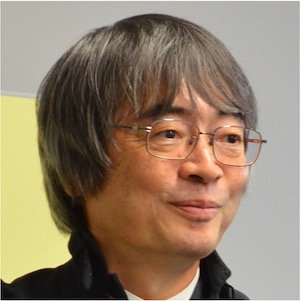 Dynamical Network Biomarkers: Data Analysis on Early Warning Signals in Complex Systems and its Application to Early Precision Medicine
Dynamical Network Biomarkers: Data Analysis on Early Warning Signals in Complex Systems and its Application to Early Precision Medicine
Tuesday, 11 July 2023, 8:30-9:30 @Main Hall
(Satellite room 501+502 is also available)
Kazuyuki Aihara
Abstract: In this talk, I review our recent studies on DNB (Dynamical Network Biomarkers) that provide early warning signals of imminent codim-1 local bifurcation from a healthy state to a disease state through a pre-disease state that is called Mibyo in Japanese and Weibing in Chinese. I also explain a possible application of DNB for early medicine by using real biological data such as gene expression data of mouse models as well as human. Further, I introduce recent collaborative work in our Moonshot project to apply control theory to possible early treatments of pre-disease states before transition to disease states.
Bio: Kazuyuki Aihara received a B.E. degree in electrical engineering and Ph.D. degree in electronic engineering from the University of Tokyo (UTokyo), Tokyo, Japan, in 1977 and 1982, respectively. Currently, he is University Professor and Professor Emeritus of UTokyo, and Deputy Director at the International Research Center for Neurointelligence (IRCN) at UTokyo. He is also leading a Moonshot project on Comprehensive Mathematical Understanding of the Complex Control System between Organs and Challenge for Ultra-Early Precision Medicine. He has been studying mathematical theory for modelling complex systems and its transdisciplinary applications in science and technology from the viewpoint of mathematical engineering and chaos engineering. He is also working to bridge different research fields like brainscience, next-generation AI as well as psychiatric and neurological disorders by mathematical modeling and analyses of brain dynamics to realize neurointelligence.
Plenary Talk III
IS RESILIENCE A QUALITY OR A QUANTITY?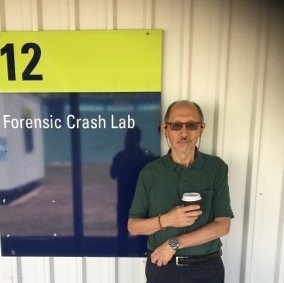
Wednesday, 12 July 2023, 8:30-9:30 @Main Hall
(Satellite room 501+502 is also available)
Erik Hollnagel
Abstract: The question is essential and not just rhetorical. It is essential because we tend tacitly to accept the statement of William Thompson (aka Lord Kelvin) that:”Qualitative knowledge is real, but... quantitative knowledge is almost always better.” Since 1891, We have therefore conventionally but wrongly assumed that we cannot understand something unless we can measure it, even though it actually is the other way around. Namely, that we cannot measure something unless we fully understand it first. Quality must therefore precede quantity. Whether resilience is one or the other also leads to different questions, if resilience is assumed to be a quantity, the essential question is simply “how much resilience is there”. “But if resilience is a quality the essential question becomes just “how does resilience come about”.The answer to the latter question is clearly more important for engineering, for design and for control!
Bio: Erik Hollnagel is Visiting Professorial Fellow, Macquarie University (Australia), and Visiting Fellow, Institute for Advanced Study, Technische Universität München (Germany). He is also Professor Emeritus from Linköping University (Sweden), École nationale supérieure des mines de Paris (ENSMP) des mines de Paris, (ENSMP, now Mines Paristech (France), and the University of Southern Denmark. Erik Hollnagel has throughout his career worked at universities, research centres, and with industries in many countries and with problems from a variety of domains and industries. He has published widely and is the author/editor of 29 books, including seven books on resilience engineering, as well as a large number of papers and book chapters. Erik has been President of the European Association of Cognitive Ergonomics (1994 – 2000) and co-founder and past chairperson of both the Resilience Engineering Association and the Resilient Health Care Society (and he is also an honorary member of both organisations.) He is also author /editor of 28 books on safety and safety related issues
Plenary Talk IV
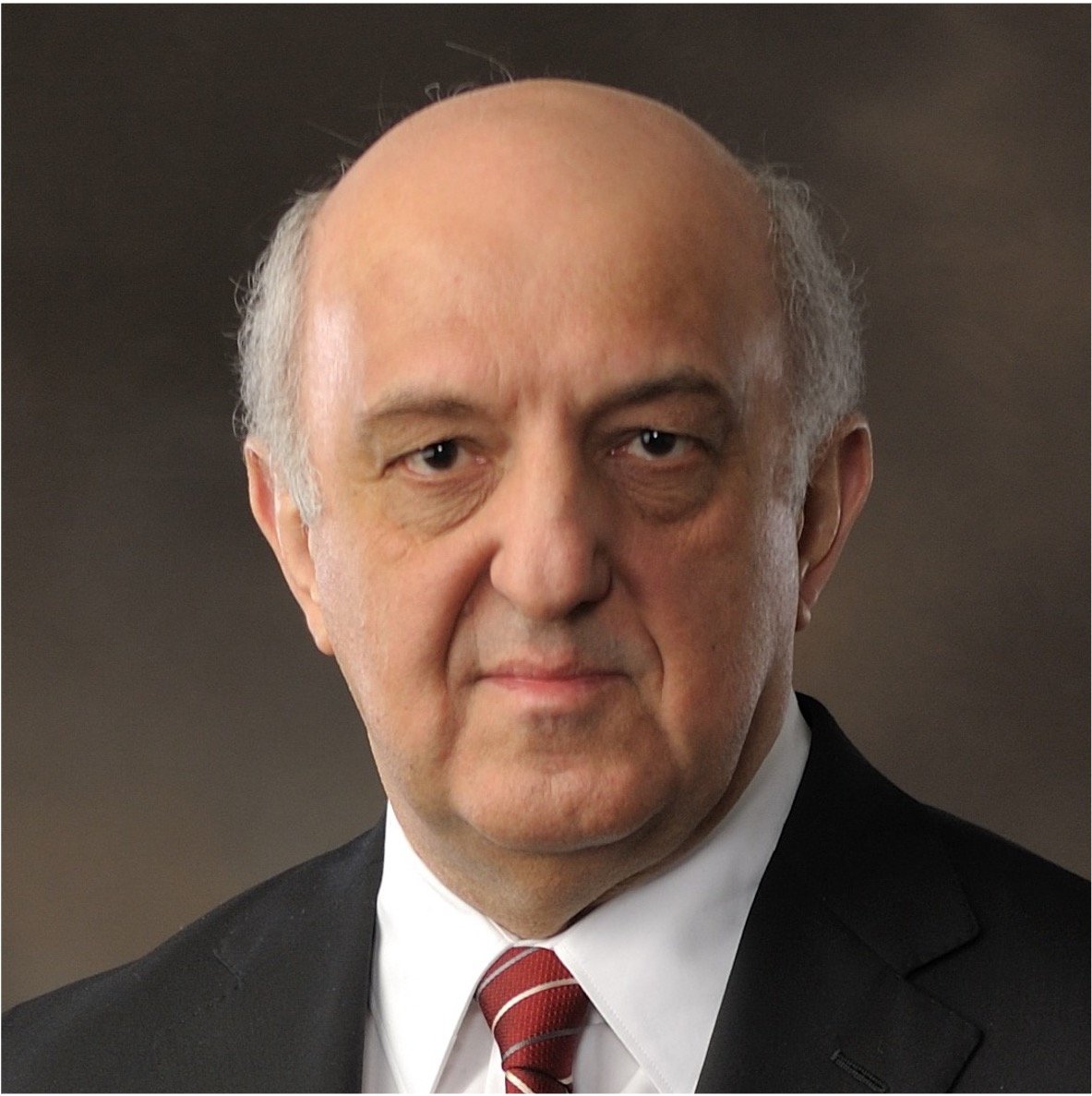 Multi-Agent Dynamical Systems: Misaligned Objectives, Equilibria, Learning, and Asymptotics
Multi-Agent Dynamical Systems: Misaligned Objectives, Equilibria, Learning, and Asymptotics
Thursday, 13 July 2023, 8:30-9:30 @Main Hall
(Satellite room 501+502 is also available)
Tamer Başar
Abstract: Decision making in dynamic uncertain environments with multiple agents having possibly misaligned objectives arises in many disciplines and application domains, including control (particularly, networked control, such as control and operation of multiple robots, unmanned vehicles, mobile sensor networks, and the smart grid), communications (particularly in transmission of information to multiple destinations under privacy constraints), distributed optimization (particularly, with topological and informational constraints), social networks (such as problems of consensus and dissensus), and economics. A natural framework, and a comprehensive one, for modeling, optimization, and analysis in such systems is that provided by stochastic dynamic games, which accommodates different solution concepts depending on how the interactions among the agents are modeled, such as whether there is a hierarchy among them, or they all operate symmetrically as far as the decision-making process goes. and whether they are fully cooperating or fully non-cooperating, or a mix of the two, as well as whether the mode of cooperation (or non-cooperation) during the evolution of the game dynamics is not fixed and changes depending on external as well as internal factors (driven by events that may be generated partially by the strategies adopted by the agents operating under asymmetric, decentralized information). The inherent asymmetry in information across the agents, with them not operating under the same (and consistent) modeling assumptions, and with strategic interactions taking place in neighborhoods and propagating across the network create major challenges in the decision-making process, necessitating each agent to operate in a non-stationary environment and develop beliefs on others, with the belief generation process leading to what is known as second-guessing phenomenon. Another challenge presents itself in scalability of the decision process, as the size of the population of the agents grows. This latter challenge actually turns out to be a blessing in itself, under some (realistic) structural specifications, as in the high population setting the agents become infinitesimal entities, making the underlying dynamic game asymptotically belonging to the class of mean field games (MFGs), a topic that has attracted intense research activity in recent years.
This plenary talk will provide an overview of recent developments in the landscape described above, focusing on some foundational results for both model-based and model-free settings, with the latter involving data-driven policy design, requiring reinforcement learning, zero-order stochastic optimization, and finite-sample analysis. Both single and multiple population scenarios will be covered. Discussion of selected applications and future challenges will conclude the talk.
Bio: Tamer Başar was born in Istanbul, Turkey. He received B.S.E.E. from Robert College, Istanbul, in 1969, and M.S., M.Phil, and Ph.D. degrees in engineering and applied science from Yale University, in 1970, 1971 and 1972, respectively. After stints at Harvard University, Marmara Research Institute (Gebze, Turkey), and Boğaziçi University (Istanbul), he joined the University of Illinois Urbana-Champaign (UIUC) in 1981 and remained on the faculty there until his retirement at the end of 2020, at which point he was designated an emeritus faculty. Since January 2021, he has been holding the titles of Swanlund Endowed Chair Emeritus; Center for Advanced Study (CAS) Professor Emeritus of Electrical and Computer Engineering (ECE); and Research Professor, Coordinated Science Laboratory (CSL) and Information Trust Institute (ITI). Since July 1, 2021, he has also been serving as the Executive Director of Illinois at Singapore Pte, Ltd. At UIUC, he has served as Director of CAS (2014-20), Interim Dean of Engineering (2018), and Interim Director of the Beckman Institute for Advanced Science and Technology (2008-10). He spent sabbatical years at Twente University of Technology (the Netherlands, 1978-79), and INRIA (Sophia-Antipolis, France, 1987-88, 1994-95).
Dr. Başar is a member of the US National Academy of Engineering (elected in 2000); Fellow of IEEE (1983), IFAC (2005), and SIAM (2012); past president (2000) of the IEEE Control Systems Society (CSS); founding president (1990-94) of the International Society of Dynamic Games (ISDG); past president (2010-11) of the American Automatic Control Council (AACC); and an IFAC Advisor. He has received several awards and recognitions over the years, including the IEEE CSS Bode Lecture Prize (2004), IFAC’s Quazza Medal (2005), AACC’s Bellman Control Heritage Award (2006), ISDG’s Isaacs Award (2010), the IEEE Control Systems Technical Field Award (2014), Medal of Science of Turkey (1993), IEEE Millennium Medal (2000), and Wilbur Cross Medal from his alma mater Yale University (2021). He has also received honorary doctorates and professorships from a number of international institutions, including KTH Royal Institute of Technology (Stockholm); Tsinghua, Shandong, and Northeastern Universities (China); Boğaziçi and Doğuş Universities (Istanbul); and NAS of Azerbaijan. He has been active in IFAC in various capacities, including Chair of Publications Managing Board (2017-23), Chair of Publications Committee (2014-17), Chair of Quazza Medal Selection Committee (2020-23, 2008-11), and Council Member (2011-14). He was the Editor-in-Chief of the IFAC Journal Automatica (2004-14) and is currently editor of several book series.
Tamer Başar has authored or co-authored over 1,000 publications, including six books and several edited volumes and handbooks, in the diverse fields of systems, control, communications, optimization, networks, and dynamic games. His current research interests are in stochastic teams, games, and networks; risk-sensitive estimation and control; mean-field game theory; multi-agent systems and learning; data-driven distributed optimization; epidemics modeling and control over networks; strategic information transmission, spread of disinformation, and deception; security and trust; energy systems; and cyber-physical systems.
Plenary Talk V
 Towards Trustworthy Data-driven Control
Towards Trustworthy Data-driven Control
Friday, 14 July 2023, 8:30-9:30@Main Hall
(Satellite room 501+502 is also available)
Sandra Hirche
Abstract: Spurred by the success of modern machine learning, data-driven techniques have become a promising approach for the control of complex dynamical systems, where physics first principle models are expensive or even impossible to derive. Still, until data-driven control in its full power can be deployed in safety-critical systems, there are significant research steps ahead of us. Most importantly, the key requirement of trustworthiness needs to be satisfied. This talk spotlights challenges for trustworthy data-driven control. One focus is on safety and robustness including the role of uncertainty quantification. Recent results on uncertainty-aware learning-based control are presented. Particularly approaches are considered, that can take aleatoric uncertainty and epistemic uncertainty due to limited training data into account. Sample efficiency, online and continual learning as well as real-time capabilities are further relevant aspects discussed in this talk. Two robotic application domains are presented, where the proposed techniques promise great advance: personalized robotic rehabilitation and autonomous underwater robotics.
Bio: Sandra Hirche holds the TUM Liesel Beckmann Distinguished Professorship and heads the Chair of Information-oriented Control in the Faculty of Electrical and Computer Engineering at Technical University of Munich (TUM), Germany (since 2013). She received the diploma engineer degree in Aeronautical and Aerospace Engineering in 2002 from the Technical University Berlin, Germany, and the Doctor of Engineering degree in Electrical and Computer Engineering in 2005 from the Technische Universität München, Munich, Germany. From 2005-2007 she has been a PostDoc Fellow of the Japanese Society for the Promotion of Science at the Fujita Laboratory at Tokyo Institute of Technology, Japan. Prior to her present appointment she has been an Associate Professor at TUM.
Semi-Plenary Talks
Semi-Plenary Talk I and Panel Discussion
Panel Session on "Control for Societal-Scale Challenges: Road Map 2030"
Monday, 10 July 2023, 18:15-19:10 @Main Hall
Organizers: Anuradha M. Annaswamy, Karl H. Johansson, and George J. Pappas

Panelists: Christos Cassandras, Sandra Hirche, Tariq Samad, Dawn Tilbury

Abstract: The world faces some of its greatest challenges of modern time and how we address them will have a dramatic impact on the life for generations to come. Control systems, consisting of information enriched by various degrees of analytics followed by decision-making, are pervading a variety of sectors, not only in engineering but beyond, into financial services, socio-economic analysis, entertainment and sports, and political and social sciences. Increased levels of automation are sought after in various sectors and being introduced into new domains. All of this bring us to a broad conversation of how control systems can meet grand societal-scale challenges, and forms the panel topic.
Prompted by a CSS initiative, a roadmap document has been put together through the efforts of over 100 leaders in the area with a forward-looking goal of investigating societal imperatives on a global scale that the controls community can shape and influence. In particular, the document identifies new and emerging directions in control theory and technology that serve as glide paths towards this goal. During this panel, we will discuss the role of control systems in the global canvas of societal needs and goals and highlights of the Road Map report.
https://ieeecss.org/control-societal-scale-challenges-road-map-2030
Agenda:
18:15-18:20: Introduction (Anu Annaswamy)
18:20-18:45: Panel presentations (moderated by Karl Johansson)
18:45-19:10: Q&A from the audience (moderated by George Pappas)
Flyer:
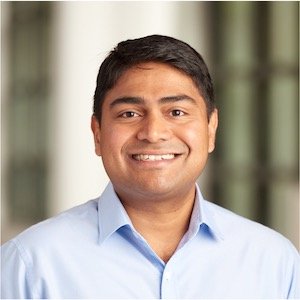 Semi-Plenary I: Human Interactive Driving: Amplify people for a safer, more enjoyable driving experience
Semi-Plenary I: Human Interactive Driving: Amplify people for a safer, more enjoyable driving experience
Monday, 10 July 2023, 18:15-19:00 @Room 501+502
Avinash Balachandran
Abstract: Despite the benefits of autonomous vehicles, their many challenges have made their wide scale deployment and adoption slower than hoped for. This has created a growing need for intelligent interaction and collaboration between increasingly, but not fully, automated vehicles and humans. Such a collaborative system promises to potentially unlock new driving experiences where an AI amplifies, supports and empowers the driver to not only be more safe but to also have a more engaging and enjoyable driving experience. Toyota Research Institute (TRI) calls this new collaborative driving paradigm Human Interactive Driving (HID) which includes research thrusts in building better learned models of human behavior, building expert level AI driving skills and sharing autonomy between an AI and human. . This talk will introduce both TRI's core research in this area as well as potential ways this research can create a safer and more enjoyable driving experience.
Bio: Dr. Avinash Balachandran is the director of the Human Interactive Driving (HID) division at Toyota Research Institute (TRI). The goal of the HID division is to create AI-driven capabilities and tools empowering humans and increasingly automated vehicles to interact more effectively and naturally. The department blends competencies in machine learning, human-machine interaction and robotics to create novel and innovative technologies for the intelligent vehicles of the future.
Prior to TRI, Dr. Balachandran was one of the early engineers on Uber's self-driving program and was instrumental in developing their first autonomous service in Pittsburgh, PA (2016). He also led engineering teams focused on autonomous driving development at EV startup Faraday Future. He is passionate about bringing cutting-edge research closer to commercialization. He is also a noted public speaker, expert and adviser on topics around autonomy and human-centric research.
Dr. Balachandran holds a B.S. in mechanical engineering and a minor in computer science from Cornell University. He also holds M.S. and Ph.D. degrees in mechanical engineering from Stanford University focusing on autonomous technologies, performance driving and human interaction. He is also a recipient of the prestigious Stanford Graduate Fellowship.
Semi-Plenary Talks II
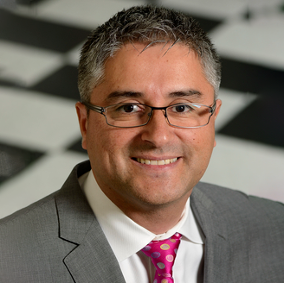 Semi-Plenary II-1: Learning Dynamics of Overparametrized Networks
Semi-Plenary II-1: Learning Dynamics of Overparametrized Networks
Tuesday, 11 July 2023, 18:15-19:00 @Main Hall
Rene Vidal
Abstract: Deep networks have led to significant improvements in the performance of AI systems. However, the mathematical reasons for this success remain elusive. For example, contrary to the common belief that overparameterization may hurt generalization and optimization, recent work suggests that overparameterization may bias the optimization algorithm towards solutions that generalize well — a phenomenon known as implicit regularization or implicit bias — and may also accelerate convergence — a phenomenon known as implicit acceleration. This lecture will study both phenomena through the lens of dynamical systems. In particular, we will provide a detailed analysis of the dynamics of gradient flow and gradient descent for overparametrized linear models showing that convergence to equilibrium depends on the imbalance between input and output weights (which is fixed at initialization) and the margin of the initial solution. The talk will also provide an analysis of the implicit bias, showing that large hidden layer width, together with (properly scaled) random initialization, constrains the network parameters to converge to a solution which is close to the min-norm solution.
Bio: René Vidal is the Rachleff and Penn Integrates Knowledge University Professor in the Departments of Electrical and Systems Engineering and Radiology, and the Director of the Center for Innovation in Data Engineering and Science (IDEAS) at the University of Pennsylvania. He is also the director of the NSF-Simons Collaboration on the Mathematical Foundations of Deep Learning (THEORINET), director of the NSF TRIPODS Institute on the Foundations of Graph and Deep Learning, Amazon Scholar, Chief Scientist at NORCE, and Associate Editor in Chief of TPAMI. His current research focuses on the foundations of deep learning and its applications in computer vision and biomedical data science. He is an ACM Fellow, AIMBE Fellow, IEEE Fellow, IAPR Fellow and Sloan Fellow, and has received numerous awards for his work, including the IEEE Signal Processing Magazine Best Paper Award, the IEEE Edward J. McCluskey Technical Achievement Award, D’Alembert Faculty Award, J.K. Aggarwal Prize, ONR Young Investigator Award, NSF CAREER Award as well as best paper awards in machine learning, computer vision, controls, and medical robotics.
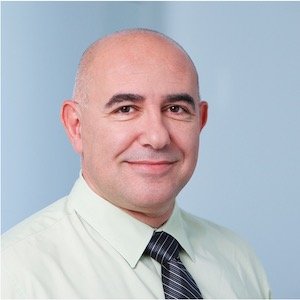 Semi-Plenary II-2: The Future is Now: Engineering Advanced Control Systems in Living Cells for Novel Therapies
Semi-Plenary II-2: The Future is Now: Engineering Advanced Control Systems in Living Cells for Novel Therapies
Tuesday, 11 July 2023, 18:15-19:00 @Room 501+502
Mustafa Khammash
Abstract: Cell therapy is a cutting-edge medical treatment that utilizes living cells to cure or manage various diseases. During the therapy, cells are either harvested from the patient's own body or obtained from a donor and genetically modified in a laboratory to enhance their therapeutic potential before being transplanted into the patient’s body. Promising results have been observed in the treatment of conditions such as cancer, heart disease, and neurological disorders.
In this seminar, I will focus on the engineering of advanced genetic control systems needed to enable closed-loop cell therapy. The genetic control system, designed specifically for this approach, continually monitors the patient's disease state and calculates the optimal amount of therapeutic treatment to deliver in real-time from within the transplanted cells. I will provide insights into emerging control theoretic and experimental approaches for designing such control systems, with particular emphasis on precision and robustness requirements. These innovative molecular controllers will form the foundation of closed-loop cell therapy and promise to deliver highly personalized and effective disease management. Overall, my seminar provides a glimpse into the exciting future of medical science and the role that cell therapy and genetic control systems will play in shaping it.
Bio: Mustafa H. Khammash received the Ph.D. degree in electrical engineering from Rice University, Houston, TX, in 1990. He then joined Iowa State University, where he created the Dynamics and Control Program and led the control group. In 2002, he joined the Faculty of the University of California at Santa Barbara (UCSB), where he served as the Director of the Center for Control, Dynamical Systems and Computation, from 2005 to 2011. In 2011, he moved with his group to Switzerland, joining the Department of Biosystems Science and Engineering at ETH Zürich as the Professor of Control Theory and Systems Biology. At ETH, he served as the Department Chair from 2015 to 2017.
Dr. Khammash works at the interface of control theory, systems biology, and synthetic biology. He develops computational and experimental methodologies for the analysis and design of biological networks. He has been creating control theoretic methods to reverse-engineer endogenous regulation and to engineer synthetic gene circuits for the robust and precise control of living cells, with applications to industrial and medical biotechnology.
Dr. Khammash is a Fellow of IEEE, a Fellow of the International Federation of Automatic Control, and a Fellow of the Japan Society for the Promotion of Science.
Semi-Plenary Talk III and Kwon Award Lecture
IFAC Foundation Kwon Award Public Lecture
Wednesday, 12 July 2023, 18:15-19:00 @Main Hall
IFAC Foundation Kwon Award Public Lecture (Citizens' Forum)
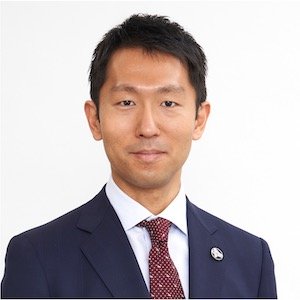 Semi-Plenary III: Towards the Sustainable Space Environment – Development of On-Orbit Servicing Technologies
Semi-Plenary III: Towards the Sustainable Space Environment – Development of On-Orbit Servicing Technologies
Wednesday, 12 July 2023, 18:15-19:00 @Room 501+502
Yusuke Kobayashi
Abstract: As the space economy grows, so does the number of space objects in Earth’s orbits, including space debris. Leaving failed satellites, rocket bodies, and other debris in orbit increases the risk of catastrophic collision and eventually an irreversibly hazardous environment.
Astroscale is tackling this global problem from three perspectives simultaneously: technology, economics, and policy. This talk will cover all three perspectives, while spotlighting autonomous control in the technology section.
For the sustainable use of the space environment, Astroscale is developing four mainstream on-orbit services: End-of-Life (EOL), Active Debris Removal (ADR), Life Extension (LEX), and “In-Space Situational Awareness” (ISSA). Business needs and regulatory activities behind these services will be introduced. These all have a common set of technology referred to as Rendezvous and Proximity Operations, and Docking (RPO&D). Two projects -- ELSA-d and ADRAS-J -- will be presented to introduce the engineering and technology that Astroscale has been developing.
ELSA-d (End-of-life services by Astroscale - demonstration) is a mission to demonstrate unprepared/semi-prepared approach and capture technology. The ELSA-d mission consists of two satellites: a Client satellite that simulates an unprepared object, and a Servicer satellite that approaches and captures the Client satellite. The talk will introduce the development and outcome of the autonomous navigation, guidance, and control system for relative position and attitude in the vicinity of the Client satellite.
Astroscale has also been selected as the commercial partner for the JAXA CRD2 (Commercial Removal of Debris Demonstration) Program Phase I, and has been developing a system that demonstrates RPO capabilities with a pre-determined Japanese upper stage rocket body, followed by the acquisition of in-situ data to better understand the movement characteristics of the debris. The talk will introduce the navigation methodology used for this mission, e.g. angle-only navigation (AON) and model matching navigation (MMN).
Bio: Yusuke joined Astroscale Japan Inc. in May 2018 as a Systems Engineer for the ELSA-d mission. He was appointed as Engineering Director in 2021 and oversees the organizational planning and operation of the Japan engineering department, as well as multiple other projects. Yusuke has over 12 years engineering experience in the space industry. Prior to joining Astroscale, he served at NEC Corporation and was involved in the entire lifecycle of earth observation satellites and science missions from systems design, assembly, integration, and verification, and in-orbit operations. During the ELSA-d mission, he served as Lead, Systems Engineering and was responsible for implementing the pioneering on-orbit satellite servicing systems that were demonstrated in low Earth orbit. Yusuke received his M.S. degree in aeronautics & astronautics from the Massachusetts Institute of Technology and a B.E. degree in aeronautics & astronautics from the University of Tokyo.
Semi-Plenary Talks IV
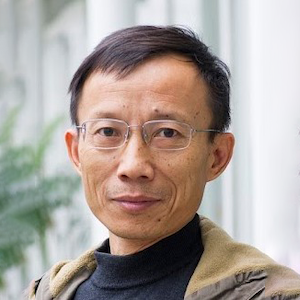 Semi-Plenary IV-1: The Blessing and Curse of Feedback: Persistence of Fundamental Limits
Semi-Plenary IV-1: The Blessing and Curse of Feedback: Persistence of Fundamental Limits
Thursday, 13 July 2023, 18:15-19:00 @Main Hall
Jie Chen
Abstract: Bode integral relations and Shannon capacity theorems are twin pillars and indeed enduring legacies of feedback and information theories, and they laid the very foundation for the design of control and communication systems. Will they continue to be relevant, in the times of network-based CPS and computation-driven AI? Relating to my own experiences and viewpoints, in this talk I shall present a control theorist’s perspective into the intriguing area of fundamental limitations and limits of control, from the early triumph of feedback theory to the latest development in networked control. The talk will commence with a summary tutorial of the classical and contemporary results in control performance limitation studies, discussing a number of selected problems and results central to the subject including Bode's classical integral relations and their multivariable extensions. This will then usher in the more recent advances, of which some of the latest information-theoretic developments in networked control will constitute the primary issues of interest, focused on the stabilization and optimal control over communication networks under limited information feedback. In a central and unifying theme throughout the talk, we shall emphasize the implications hidden behind the mathematical results, on intrinsic control difficulties and the tradeoffs required to navigate through the design constraints. We argue that, in today’s technological world which is increasingly more information-rich and data-centric, scientific inquiry into the feedback limitations, perhaps timely and reassuringly, will continue to be vital, and will likely hold the key in developing an explainable theory for networked, AI-enabled control systems.
Bio: Jie Chen holds the appointment of Chair Professor with the Department of Electrical Engineering, City University of Hong Kong, Hong Kong, China. He received the B.S. degree in aerospace engineering from Northwestern Polytechnic University, Xian, China in 1982, the M.S.E. degree in electrical engineering, the M.A. degree in mathematics, and the Ph.D. degree in electrical engineering, all from The University of Michigan, Ann Arbor, Michigan, in 1985, 1987, and 1990, respectively. Prior to joining City University, he was with The University of California, Riverside, California from 1994 to 2014, where he was a Professor and served as Professor and Chair for the Department of Electrical Engineering. He has also held guest positions and visiting appointments with institutions in Australia, Chile, China, France, Germany, Japan, and Sweden. His main research interests are in the areas of linear multivariable systems theory, system identification, robust control, optimization, time-delay systems, networked control, and multi-agent systems. He is the author of several books, on subjects ranging from system identification to time delay systems, and to information-theoretic control and fundamental control limitations.
An elected Fellow of IEEE, Fellow of AAAS, Fellow of IFAC and a Yangtze Scholar/Chair Professor of China, Dr. Chen received US National Science Foundation CAREER Award, SICE International Award, and Natural Science Foundation of China Outstanding Overseas Young Scholar Award. He was an IEEE Control Systems Society (CSS) Distinguished Lecturer. He served the IEEE and IFAC communities in various capacities, including, as a member on the CSS Board of Governors and a CSS Chapter Activities Chair, and a member of the IFAC Technical Board. He also served on a number of journal editorial boards, as an Associate Editor and a Guest Editor for the IEEE Transactions on Automatic Control, a Guest Editor for IEEE Control Systems Magazine, an Associate Editor for Automatica, an Associate Editor and a Guest Editor for International Journal of Robust and Nonlinear Control, and the founding Editor-in-Chief for Journal of Control Science and Engineering. He presently serves on the editorial boards of International Journal of Robust and Nonlinear Control, and SIAM Journal on Control and Optimization. He routinely serves on program and organizing committees of international conferences, most recently as the General Chair of the 3rd IEEE Conference on Control Technology and Applications, and the International Program Committee Chair of the 16th IFAC Workshop on Time Delay Systems.
 Semi-Plenary IV-2: Observability, Diagnosability and Predictability of Hybrid Dynamical Systems
Semi-Plenary IV-2: Observability, Diagnosability and Predictability of Hybrid Dynamical Systems
Thursday, 13 July 2023, 18:15-19:00 @Room 501+502
Maria Domenica Di Benedetto
Abstract: Currently, safety-critical embedded control systems, such as those encountered in transportation systems (e.g., airplanes, cars, and trains) or industrial plants, have become increasingly important, as autonomy is taking center stage. In their design, it is crucial to develop methods that can deal with systems that include heterogeneous interacting dynamics, i.e. hybrid systems. A central problem in control theory is the reconstruction of the internal behavior of a dynamical system on the basis of the available measurements. State observability has been investigated both in the continuous domain, since the sixties, and in the discrete state domain, since the eighties. In this talk, we present a view of the above topic for a general class of hybrid systems, with the specific objective of showing the roles that the continuous and the discrete dynamics, as well as their interactions, play in observability and related properties such as diagnosability and predictability. We show how hybrid characteristics come into play and give rise to particular aspects and features that do not simply generalize those well-known for traditional dynamical systems. Given the complexity of checking diagnosability and predictability of hybrid systems, we illustrate how to approach the problem in an approximate setting, with a precision that can be guaranteed a priori, by exploiting the existence of symbolic models. Finally, some specific examples will show the interest of the results in different application domains.
Bio: Maria Domenica Di Benedetto is Professor of Automatic Control at University of L’Aquila (Italy). She obtained her PhD degree (Doctorat d'Etat ès Sciences) in 1987, from Université de Paris-Sud (Orsay, France). She had been McKay Professor from 1990 to 1995 and Adjunct Professor from 1995 to 2002, at the Department of EECS of the University of California at Berkeley. She held visiting positions at MIT, the University of Michigan Ann Arbor, and Ecole Nationale Supérieure de Mécanique in Nantes (France). She has been President of the Italian Association of Researchers in Automatic Control (2013- 2019). She is President of the European Embedded Control Institute since 2009. She is an IEEE and IFAC Fellow. She is Chair of the IFAC Nichols Medal Selection Committee and member of the IFAC Fellow Selection Committee. She is a Distinguished Lecturer of the IEEE-CSS. She has been Vice-President Member Activities IEEE-CSS (2021-2022). She is Editor of the IEEE Press Series on Control Systems Theory and Applications and Senior Editor of the IFAC Nonlinear Analysis: Hybrid Systems. She authored or co- authored more than 300 research papers in archival journals, book chapters, and international conference proceedings, in the areas of nonlinear and hybrid systems control theory, diagnosability and predictability in cyber-physical systems, and applications to automotive, smart grids and traffic control.


